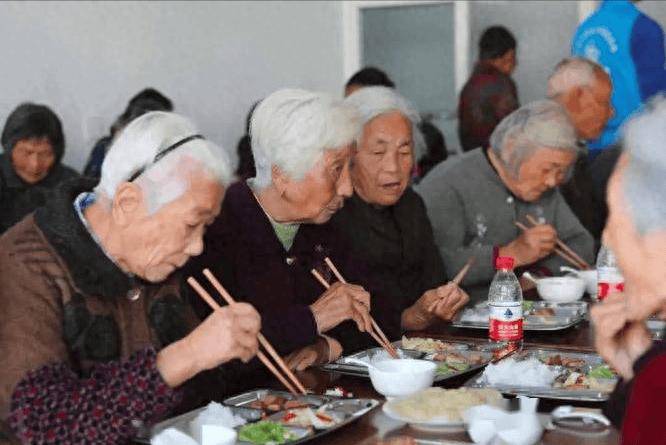Before reading this article, we sincerely invite you to click “Follow”, which will not only facilitate your discussions and sharing but also provide you with more professional health knowledge to support your health. Thank you for your support.
I believe everyone has experienced such moments: an ordinary day suddenly disrupted by minor illnesses, causing endless annoyances. This is especially true for the elderly. With advancing age, the body’s functions gradually decline, making it easy to fall ill due to improper diet. Many elderly people frequently fall ill. Is it really caused by “eating randomly”?
In order to help everyone gain a deeper understanding of medical knowledge and make learning more enjoyable, we will use a specific clinical case to explain. By adopting this method, not only will the explanation be more vivid and interesting, but it will also help everyone intuitively understand relevant medical concepts.
Lao Xu has been retired for many years and should have been enjoying a leisurely life in his old age. However, he has been constantly plagued by minor illnesses. Whether it’s a cold, diarrhea, or sudden unexplained pains, it has made him very uncomfortable.
One day, while chatting with his neighbor, he heard the following opinion: “Many elderly people frequently fall ill because they eat randomly.” These words struck a chord with him, making him think about his recent discomforts and reflect on his dietary habits.
Lao Xu decided to consult a specialist at the hospital to see if his health problems were indeed due to his diet. Upon arrival at the hospital, he detailed his dietary habits and frequent health issues to the doctor. After listening, the doctor not only conducted a series of examinations but also inquired in detail about his diet.
The doctor informed him that the digestive system of the elderly gradually becomes less robust than before. At this stage, consuming greasy or hard-to-digest foods can burden the body. For instance, many elderly people enjoy eating fried chicken, deep-fried foods, spicy foods like hotpot, chili, etc., which can lead to discomfort in the gastrointestinal tract and other health issues.
In addition, there are some seemingly healthy but potentially unfriendly foods for the elderly that should be avoided. For example, legumes, although rich in protein, may lead to gas buildup, bloating, and even indigestion for older individuals with poor digestive function if consumed excessively.
Furthermore, some raw and cold foods such as cold drinks and raw vegetable salads are not suitable for regular consumption by the elderly as they may cause discomfort to the body.
After listening to the doctor’s explanation, Lao Xu suddenly realized that many of the health issues he had encountered recently were likely due to improper diet.
He decided to go home and adjust his dietary habits, trying to consume less or avoid foods that may be harmful to his body while incorporating more ingredients suitable for the elderly, such as easily digestible porridge, noodles, etc.
Lao Xu’s story is just a microcosm, reflecting the mistakes that many elderly people may make in their diets. Understanding which foods to avoid is crucial for maintaining the health of the elderly.
Having a sensible dietary habit is essential for maintaining good health in old age. To help you better understand which foods to avoid during dinner, below are some specific food choices and their potential effects on the body.
Elderly individuals should avoid consuming high-fat, high-calorie foods during dinner, such as enticing grilled meat and fried foods. These foods are not only difficult to digest but can also lead to elevated blood lipids. Long-term consumption can easily trigger cardiovascular diseases.
Imagine an elderly person who regularly consumes high-fat dinners experiencing symptoms like chest tightness and fatigue. These are signals of an overstressed cardiovascular system.
It’s advisable to minimize excessive salt intake during dinner. High-salt foods like salted fish, pickles, etc., not only strain the heart but may also lead to high blood pressure. Especially for elderly individuals predisposed to hypertension, excessive salt intake is adding fuel to the fire.
Imagine an elderly person who frequently consumes salted fish noticing significant fluctuations in their blood pressure. This directly relates to the salt intake in their diet.
Consuming an excessive amount of refined carbohydrates during dinner, such as white rice and white bread, quickly raises blood sugar levels. For elderly individuals in the pre-diabetic stage or already diabetic, this dietary habit can make blood sugar control more challenging.
Consider an elderly diabetic who continues to consume large amounts of refined carbohydrates. They may find it difficult to achieve stable blood sugar levels, which is extremely detrimental to health.
Furthermore, elderly individuals should consider the digestibility of foods during dinner. Some raw, cold, or overly firm foods like raw vegetable salads or nuts, while nutritionally valuable, are hard to digest and may cause discomfort in the gastrointestinal tract. Imagine an elderly individual with weak stomach function frequently consuming large amounts of raw vegetable salads during dinner; they may experience stomach discomfort or indigestion.
Moderate consumption of fermented foods may differ from traditional viewpoints, but they can enhance gut health and provide necessary prebiotics, helping improve digestion and boost immunity in the elderly.
Imagine an elderly person who regularly consumes moderate amounts of fermented foods noticing improvements in their gut health and overall comfort. The impact of dinner on an elderly person’s health is multifaceted. Making the right dietary choices can help them avoid many health issues and enhance their quality of life.
What are your thoughts on the connection between aging and diet-related illnesses among the elderly? Feel free to discuss in the comments section!
References:
[1] Chen SS. Effect of dietary structure on the health status of Chinese elderly, Journal of Shandong Normal University (Natural Science Edition), 2016-09-15


